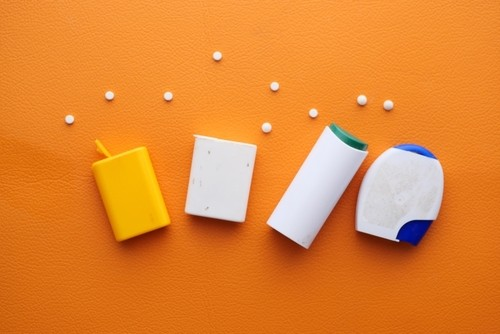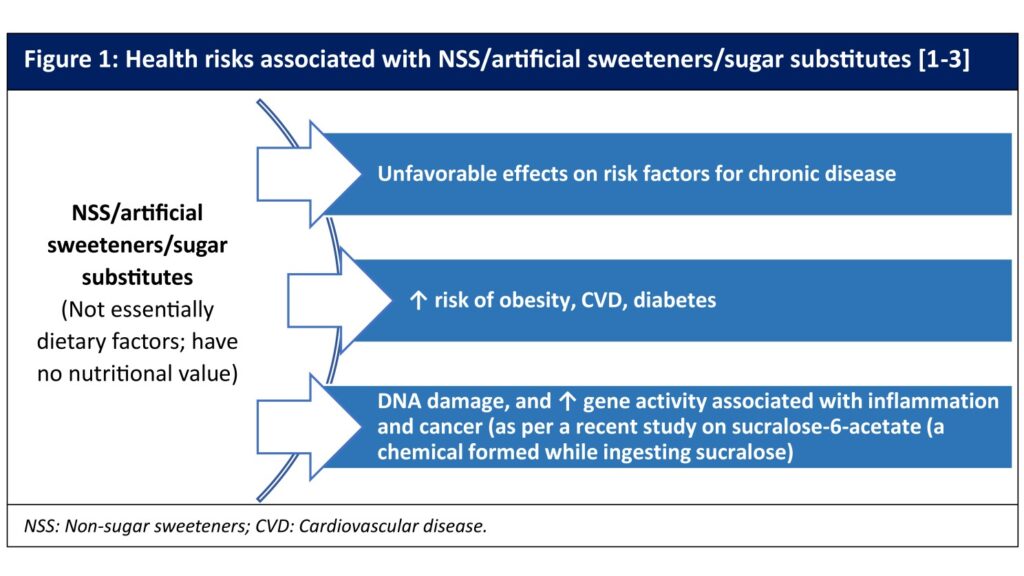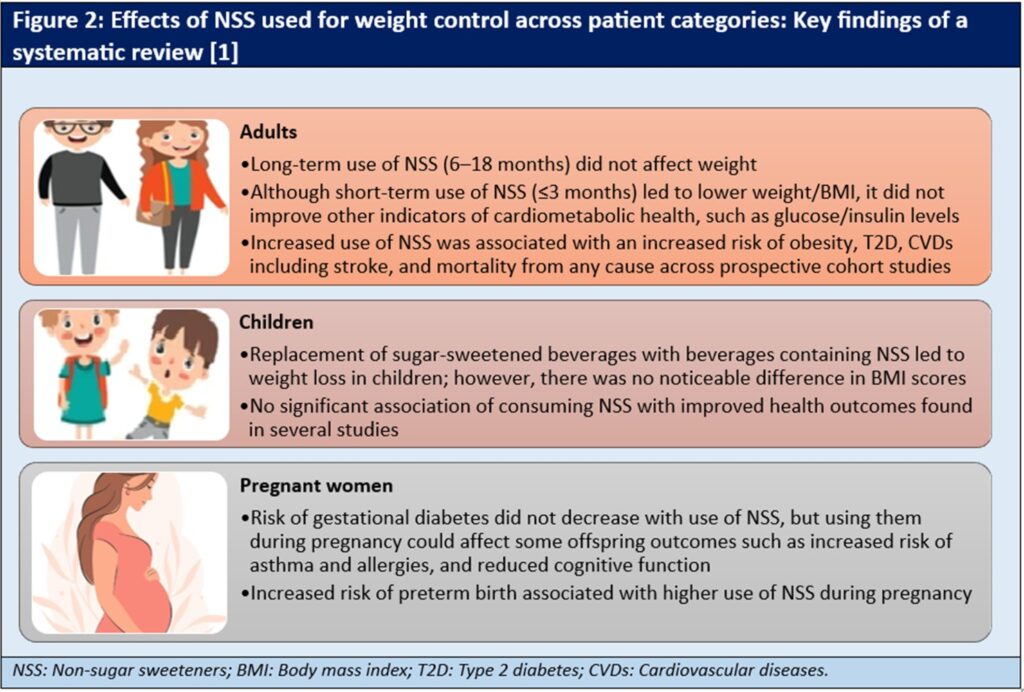
As per the recent estimates by the World Health Organization (WHO), about 2 billion adults and >340 million children and adolescents are overweight/obese. Many non-communicable diseases (NCDs) are associated with obesity and contribute considerably to death rates worldwide. Non-sugar sweeteners (NSS) are used to replace free sugars for weight control. These include artificial and natural sweeteners that are not classified as sugar, such as aspartame, saccharin, stevia, and sucralose [1].
Health risks with NSS use
Non-sugar sweeteners or sugar substitutes or artificial sweeteners are often proclaimed to have fewer calories than sugar or no calories at all; however, it is not clear if their long-term use can aid weight loss or management [1]. Instead, current evidence highlights that they are associated with significant health risks. A recent article by Suran M, published in the “Journal of the American Medical Association (JAMA)”, reported increased risk of obesity, type 2 diabetes (T2D), and cardiovascular diseases (CVDs), with long-term use of NSS. This data led to the development of a new WHO guideline on NSS, advising against using NSS to control weight or manage NCDs [1,2]. In addition, NSS is also associated with cancer risk and death in adults, according to recent reports [1-3] (Figure 1).

Avoid using NSS for weight control – WHO recommends in a new guideline
- This recommendation is based on findings of a systematic review of 283 studies, including randomized trials, prospective cohort studies, and case-control studies [1]. The findings are highlighted in Figure 2.
- The recommendation is applicable to all individuals without pre-existing diabetes [1,2].
- The recommendation covers all artificial and natural sweeteners that are not classified as sugars found in manufactured food/beverages or sold individually to be added to food/beverages by consumers [1,2].

Risk of cancer linked with use of NSS
International Agency for Research on Cancer (cancer research arm of the WHO) will list aspartame, one of the most commonly used artificial sweeteners in products such as diet sodas, chewing gum, and some packaged drinks, as “possibly carcinogenic to humans” in July 2023. This declaration of aspartame’s possible carcinogenicity is based on clinical evidence and preclinical data. An observational study in 100,000 adults showed that larger consumption of artificial sweeteners, especially aspartame, was associated with an increased risk of cancer. Preclinical data demonstrated that some cancers were associated with aspartame use [3]. Moreover, in a small number of case-control studies, saccharin was linked with bladder cancer [1].
Clinical implications [1]
- Use of NSS in the food supply chain is on the rise, especially with continued efforts to lower intake of added sugar. In addition, growing evidence on NSS raises concerns about their consumption. Thus, it is essential to adhere to the new WHO guideline recommendation on NSS use, which strictly warns to avoid using them for weight control and reducing the risk of NCDs.
- One should opt for unsweetened food/beverages whenever possible; also, policy makers should lay emphasis on reducing consumption of sugar and its substitutes in infants/young children who are still developing taste preferences.
- The WHO guideline on NSS forms a part of the dietary recommendations, which is of prime importance in weight management, and thus, will guide general population about ways to modify their diets.
References
- Suran M. Sugar substitutes don’t help weight control and may increase risk of heart disease and diabetes, WHO warns. JAMA. 2023;330(1):9-10.
- WHO advises not to use non-sugar sweeteners for weight control in newly released guideline [internet]. World Health Organization. 2023. Available from: https://www.who.int/news/item/15-05-2023-who-advises-not-to-use-non-sugar-sweeteners-for-weight-control-in-newly-released-guideline
- Rigby J, Naidu R. Exclusive: WHO’s cancer research agency to say aspartame sweetener a possible carcinogen -sources [internet]. Reuters. 2023. Available from: https://www.reuters.com/business/healthcare-pharmaceuticals/whos-cancer-research-agency-say-aspartame-sweetener-possible-carcinogen-sources-2023-06-29/
